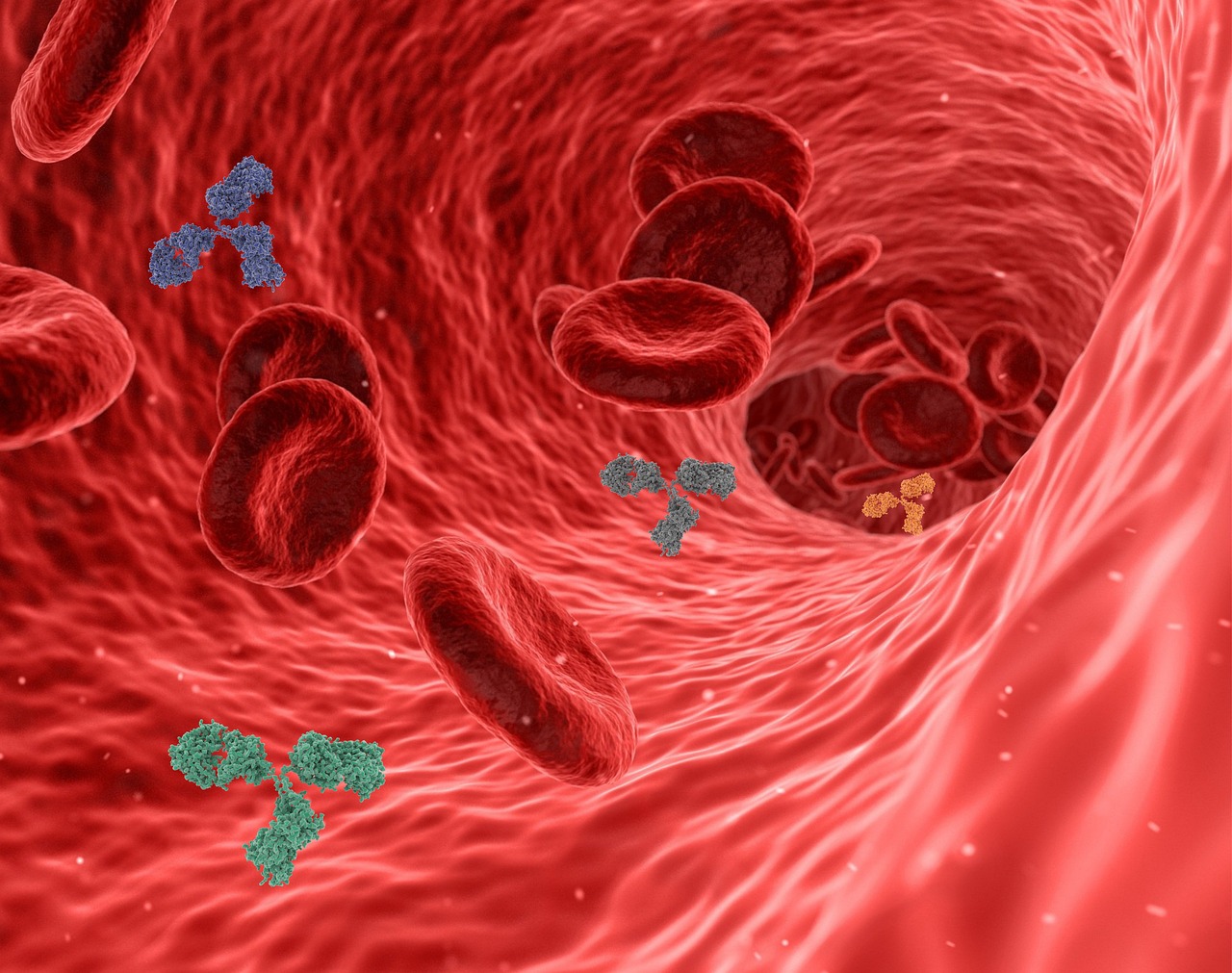-
Table of Contents
. Your body’s ultimate defense force.
Introduction
The immune system is a complex network of cells, tissues, and organs that work together to defend the body against harmful invaders such as bacteria, viruses, fungi, and parasites. It distinguishes between the body’s own cells and foreign substances, mounting a targeted response to eliminate threats while protecting healthy tissues. This intricate system relies on a delicate balance of innate and adaptive immunity, each playing a crucial role in maintaining overall health and well-being.
Understanding the Immune Response
Our immune system is a complex and remarkable network of cells, tissues, and organs that work tirelessly to protect us from a constant barrage of harmful invaders. These invaders, known as pathogens, include bacteria, viruses, fungi, and parasites, all of which pose a threat to our health and well-being. Understanding how our immune system functions is crucial for appreciating its vital role in maintaining our overall health.
The immune response can be broadly categorized into two interconnected branches: innate immunity and adaptive immunity. Innate immunity is our first line of defense, a rapid and non-specific response to any perceived threat. Think of it as the security guards of our body, always on patrol and ready to react to anything suspicious. This branch includes physical barriers like our skin and mucous membranes, which prevent pathogens from entering in the first place. If a pathogen manages to breach these barriers, innate immune cells like macrophages and neutrophils come into play, engulfing and destroying the invaders.
Adaptive immunity, on the other hand, is a more specialized and targeted response that develops over time. It’s like the specialized forces called in when the initial security measures are overwhelmed. This branch involves lymphocytes, a type of white blood cell, which recognize and remember specific pathogens. When a pathogen is encountered for the first time, B cells produce antibodies, specialized proteins that bind to the pathogen and mark it for destruction. T cells, another type of lymphocyte, directly attack infected cells or help regulate the immune response.
Furthermore, adaptive immunity has a remarkable ability to remember past encounters with pathogens. This is the basis of immunity acquired through vaccination. Vaccines expose the body to weakened or inactive forms of pathogens, triggering an adaptive immune response without causing disease. This “memory” allows the immune system to mount a faster and more effective response upon subsequent exposure to the actual pathogen.
The intricate interplay between innate and adaptive immunity is essential for effective pathogen clearance and long-term protection. However, the immune system can sometimes malfunction, leading to a variety of health problems. Autoimmune diseases, for example, occur when the immune system mistakenly attacks the body’s own tissues. Immunodeficiency disorders, on the other hand, result from a weakened immune system, leaving individuals susceptible to infections.
Understanding the complexities of the immune response is crucial for developing new treatments for these and other immune-related diseases. Ongoing research continues to unravel the intricate mechanisms that govern our immune system, paving the way for innovative therapies that can enhance our body’s natural defenses and improve human health.
Boosting Immune Health Naturally
Our immune system is a complex and remarkable network of cells, tissues, and organs that work tirelessly to protect us from harmful invaders like bacteria, viruses, and parasites. It’s a sophisticated defense system, constantly on patrol, identifying and neutralizing threats to keep us healthy. However, in today’s fast-paced world, our immune systems can become overwhelmed and weakened by various factors, including stress, poor diet, lack of sleep, and environmental toxins. Fortunately, there are several natural ways to support and boost our immune health, empowering our bodies to fight off illness and maintain optimal well-being.
One of the most fundamental pillars of a strong immune system is a balanced and nutritious diet. Consuming a variety of fruits, vegetables, whole grains, and lean proteins provides the essential vitamins, minerals, and antioxidants that our immune cells need to function effectively. For instance, vitamin C, found abundantly in citrus fruits, berries, and leafy greens, is a powerful antioxidant that helps protect immune cells from damage. Similarly, zinc, present in nuts, seeds, and legumes, plays a crucial role in immune cell development and function. Furthermore, incorporating foods rich in omega-3 fatty acids, such as fatty fish, flaxseeds, and walnuts, can help reduce inflammation and support immune balance.
Alongside a healthy diet, regular physical activity is essential for immune system health. Exercise has been shown to increase the circulation of immune cells throughout the body, enhancing their ability to detect and eliminate pathogens. Moreover, moderate-intensity exercise can help regulate stress hormones, which can suppress immune function. Aim for at least 30 minutes of moderate-intensity exercise most days of the week to reap the immune-boosting benefits.
Adequate sleep is another cornerstone of a robust immune system. During sleep, our bodies repair and regenerate, including the production of immune cells. Chronic sleep deprivation can weaken the immune response, making us more susceptible to infections. Therefore, prioritize getting 7-9 hours of quality sleep each night to allow your immune system to function optimally.
Stress management is equally important for immune health. Prolonged exposure to stress can suppress the immune system, leaving us vulnerable to illness. Fortunately, there are numerous stress-reducing techniques that can help. Practices like yoga, meditation, deep breathing exercises, and spending time in nature can effectively lower stress levels and support immune function.
Finally, maintaining good hygiene practices is crucial for preventing the spread of germs and protecting our immune system. Regular handwashing with soap and water, covering coughs and sneezes, and avoiding close contact with sick individuals can significantly reduce the risk of infection.
By incorporating these natural strategies into our daily lives, we can empower our immune systems to function at their best, enhancing our overall health and well-being. Remember, a healthy immune system is a vital investment in our long-term health and vitality.
The Body’s Defense Mechanisms
Our immune system is a complex and remarkable network of cells, tissues, and organs that work tirelessly to protect us from a constant barrage of harmful invaders. These invaders, known as pathogens, include bacteria, viruses, fungi, and parasites, all of which seek to exploit our bodies for their own survival. Fortunately, our immune system has evolved sophisticated defense mechanisms to identify and neutralize these threats, ensuring our overall health and well-being.
The first line of defense in this intricate system is our innate immunity, a non-specific response that acts as a general barrier against pathogens. This includes physical barriers like our skin and mucous membranes, which prevent entry into the body. Furthermore, chemical barriers such as stomach acid and enzymes in tears and saliva work to destroy pathogens that manage to breach these initial defenses. If a pathogen does manage to penetrate these barriers, the innate immune system deploys a range of cellular and chemical weapons.
Phagocytes, a type of white blood cell, act as the front-line soldiers, engulfing and destroying pathogens through a process called phagocytosis. Natural killer cells, another type of white blood cell, target and eliminate infected cells, preventing the spread of infection. In addition, the innate immune system releases inflammatory mediators, chemicals that trigger inflammation, a localized response characterized by redness, swelling, heat, and pain. Inflammation helps to contain the infection, recruit immune cells to the site of invasion, and initiate tissue repair.
However, the innate immune system alone is not always sufficient to combat complex or persistent infections. This is where our adaptive immunity comes into play, a highly specific and targeted response that develops over time. Adaptive immunity relies on lymphocytes, a type of white blood cell that includes B cells and T cells. B cells produce antibodies, specialized proteins that bind to specific antigens, unique molecules found on the surface of pathogens. Antibodies neutralize pathogens by preventing them from attaching to and infecting cells, or by marking them for destruction by other immune cells.
T cells, on the other hand, directly attack infected cells or help to regulate the immune response. There are several types of T cells, each with a specific function. Cytotoxic T cells, for example, kill infected cells by releasing toxic substances. Helper T cells, as their name suggests, assist other immune cells by releasing signaling molecules that enhance their activity. Furthermore, the adaptive immune system has a remarkable ability to remember past encounters with pathogens. This immunological memory allows for a faster and more effective response upon subsequent exposures, providing long-lasting protection against specific diseases.
In conclusion, our immune system is a complex and dynamic network of interconnected defenses that work together to protect us from a vast array of pathogens. The innate immune system provides a rapid and general response, while the adaptive immune system offers a highly specific and targeted attack. Understanding how these intricate mechanisms function is crucial for developing effective strategies to prevent and treat infectious diseases, ultimately safeguarding our health and well-being.
Q&A
1. **What is the primary function of the immune system?**
To protect the body from harmful pathogens like bacteria, viruses, and fungi.
2. **What are the two main branches of the immune system?**
Innate immunity and adaptive immunity.
3. **How does the adaptive immune system differ from the innate immune system?**
The adaptive immune system is specific to a particular pathogen and develops memory, providing long-lasting immunity, while the innate immune system provides a general, non-specific response.
Conclusion
The immune system is a complex and dynamic network of cells, tissues, and organs that work together to protect the body from harmful invaders. Its intricate mechanisms, involving both innate and adaptive responses, provide a remarkable defense against a vast array of pathogens. Understanding the intricacies of immune system functionality is crucial for developing effective strategies to combat infectious diseases, autoimmune disorders, and cancer.

